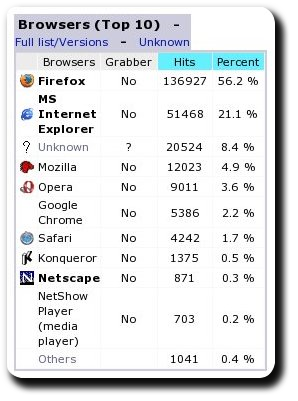Blog structure change
While starting this blog back in 2007, I didn’t care much about the URL being redundantly long in form of https://www.inspirated.com/wordpress/. Truth be told — being the lazy bum that I am — I didn’t want to go through the administrative troubles of updating the site structure to have something brief. That is, until today. As I was registering this blog as my OpenID at Slashdot I really got fed up with the sub-directory being part of my claimed identity. The result of this major aggravation was a regular Apache nutjob. First of all, I followed the instructions on this page. Then, I put together a quick .htaccess rewrite to ensure that old addresses (e.g. /wordpress/anything) still get permanently redirected to new ones (i.e. /anything):
<IfModule mod_rewrite.c> RewriteEngine On RewriteBase / RewriteCond %{REQUEST_FILENAME} !-f RewriteCond %{REQUEST_FILENAME} !-d RewriteRule ^.*wordpress\/(.*)$ \/$1 [R=301,L] </IfModule> |
And just as everything seemed to work perfectly, the fgallery plugin insisted on ignoring the new URL. Digging up a bit, the culprit turned out to be a bug in fgallery‘s implementation which constructed gallery links with the WordPress address instead of the Blog address (the difference is critical in installations such as mine where WP’s core files resides in a subdirectory but the blog uses root directory for friendly URLs). The fix was trivial (had to replace a few get_bloginfo('wpurl') calls with get_bloginfo('url') instead), and lo and behold! Everything’s functional again. I should have done this little exercise a long while ago but well, better late than never. As a sidenote, this does not mean that I am reconsidering my slothful position on other pending tasks for the blog. Since for most of them I adhere to Georgy Shaw’s version of the quote instead, i.e., better never than late.




